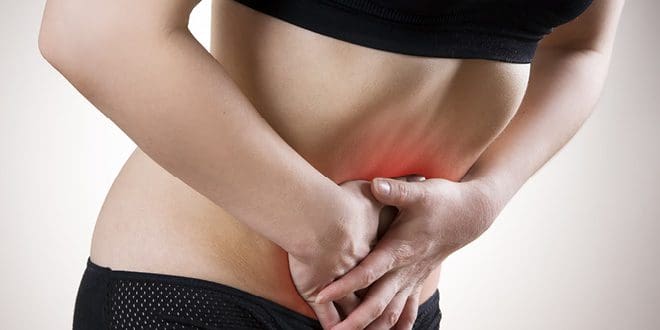Everyday things that could be affecting your menstrual cycle
While birth control, pregnancy and certain health conditions are known to affect your period, there are other less obvious causes you may not be aware of. It is important to be aware of any changes in your cycle as this is an indicator of your overall health. Picking up on any changes earlier on will be better for you, as you can make the appropriate changes before it gets any worse.


1. Excessive stress
Stress is something that every person has experienced at some point in their lives. Although some stress can be good and even help us challenge ourselves, too much can negatively affect our health. If you are someone who is constantly feeling stressed, whether it be from work, family, or relationships, it can affect your menstrual cycle. This is because stress can affect the part of the brain responsible for producing hormones, which can throw hormonal levels out of whack, leading to changes in the frequency and duration of your menstrual period. It is important you find healthy ways to deal with stress such as yoga, meditation or supplements. Or if you are feeling the stress from too much overtime at work you may want to consider cutting back your hours.


2. Too much exercise
While working out has many benefits, excessive exercise can halt your period as this may be interpreted as a stressor on the body. To ovulate you need a certain amount of body fat, so if you fall short of this amount you may stop ovulating. This could mean you only get your period a few times a year, or it may be absent for up to an entire year. So if you are following a strenuous exercise regime, it’s important to fuel up on enough protein, fats and carbohydrates to provide the energy you need.


3. Excess alcohol
As it turns out, those weekend nights on the town not only cause vicious hangovers, but affect your menstrual cycle too. And if you’re someone who regularly enjoys a couple glasses of wine with dinner, this could also be wreaking havoc on your period. Alcohol can cause a temporary increase in oestrogen and testosterone levels, which may affect the normal hormonal changes necessary for ovulation to occur. This can result in your period being irregular, or perhaps missing entirely. The best way to avoid this is to have no more than one drink per day.


4. Weight gain
While a slight weight gain of three or five kilograms may not have a noticeable effect on your period, rapid weight gain can. If you put on 10 kilograms or more within a short time, it can impact on your hormones. When you put on weight, your ovaries begin to produce testosterone. This affects ovulation, so you may have extremely long cycles or simply miss your period entirely.


5. Infections
Although an infection doesn’t affect your hormones, it can cause excess bleeding which may lead you to think you are getting your period too frequently. This can be caused by bacterial infections, pelvic inflammatory disease or sexually transmitted infections, which can cause bleeding from the inside of your uterus. If you are bleeding too frequently and its accompanied by painful urination, pain or tenderness in your abdomen, unusual discharge, fever, or vomiting, you need to see your gynaecologist.
7. Smoking
Your risk of developing premenstrual syndrome (PMS) is higher the more you smoke and the earlier you started. In case you needed another reason to quit smoking. Smoking has been known to alter levels of oestrogen, progesterone, and testosterone that are all involved in PMS. In addition, smoking can cause you to have shorter and more irregular menstrual cycles.


6. Thyroid problems
Your thyroid helps regulate your menstrual cycle as too much or too little thyroid hormone can cause your period to be light, heavy, or infrequent. Thyroid disease can also lead to amenorrhoea, a condition where your periods stop for several months or longer. If you think you are having issues with your thyroid, make an appointment with your doctor to get the blood tests needed to check your thyroid hormone levels. There is a great deal of information that may help you in our book Your Thyroid Problems Solved.
8. PCOS
Polycystic Ovarian Syndrome is the most common hormonal disorder affecting women in their reproductive years. Women with PCOS develop too much luteinising hormone (LH) compared to follicle stimulating hormone (FSH), and as a result ovarian follicles do not develop properly and normal ovulation is affected. Common symptoms include long, unpredictable or absent periods, as well as acne, excessive hair growth and weight gain. While doctors often prescribe the oral contraceptive pill to regulate the menstrual cycle, this isn’t a viable solution long-term. Often simple diet and lifestyle changes can make a huge difference. Another solution is the use of bio-identical hormones. Most women with PCOS are deficient in progesterone. Many of these women can benefit from the use of natural progesterone in the form of creams, troches or capsules. Natural progesterone does not increase weight, and may help to relieve many of the symptoms of PCOS. Progesterone can help relieve painful and/or heavy periods, endometriosis, iron deficiency, PMT & PMS, anxiety, insomnia, and poor libido. It can also restore fertility in women with unexplained fertility and help women with auto-immune disorders and thyroid problems. Progesterone helps to balance the entire hormonal system via the pituitary gland and reduces inflammation. Most women find that progesterone works best as a cream and strength varies from 5 to 10%.
The healthier you are, the more likely you will have balanced hormones and a non-problematic menstrual cycle. If you would like to improve the health of your gut, your liver and your immune system, the 15 Day Cleanse can help you achieve this.











Leave A Comment